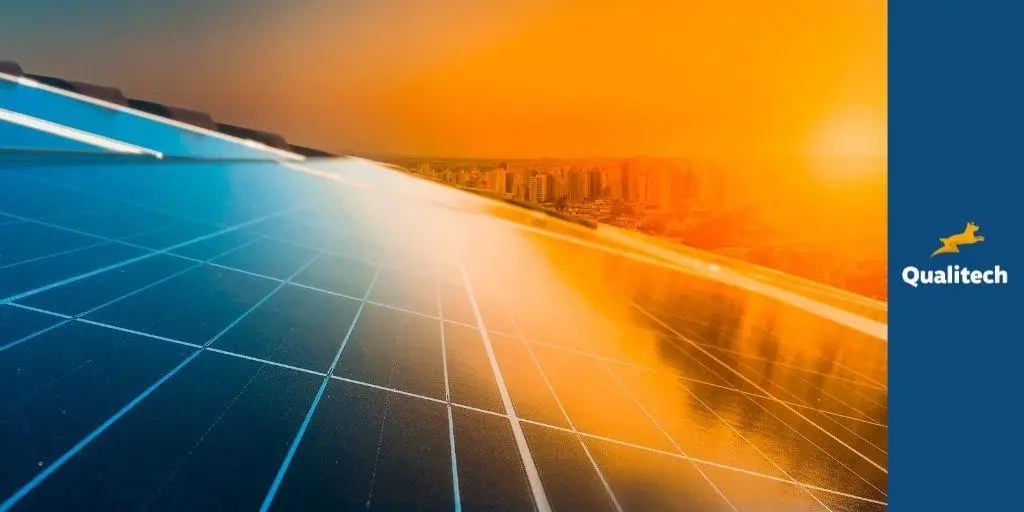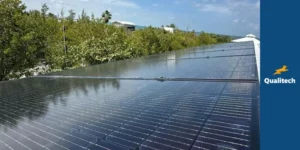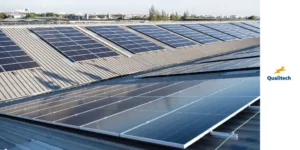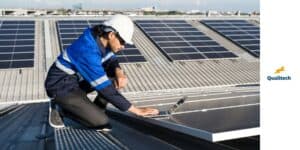
As the world shifts towards clean, renewable energy sources, solar panels have become an increasingly popular option. They offer a way to harness the power of the sun and convert it into usable electricity, making them an excellent alternative to non-renewable resources like coal and oil. But how do solar panels work, and what is the science behind their ability to generate electricity from Sunlight?
The Basics of Solar Panel Technology
Solar panels are made up of small units called photovoltaic (PV) cells, which are typically made of silicon, a semiconductor material that is able to conduct electricity when exposed to Sunlight. When Sunlight hits a PV cell, it causes the electrons in the silicon atoms to break free from their atoms and flow through the material. This flow of electrons creates a direct current (DC) of electricity.
However, the DC electricity produced by the solar panels is not yet usable for most electrical systems. Instead, it needs to be converted into alternating current (AC) electricity, which is the standard for powering our homes and businesses. This is where the inverter comes in. The inverter takes the DC electricity produced by the solar panels and converts it into AC electricity that can be used to power our homes and businesses.
Efficiency Factors for Solar Panels
To get the most out of solar panels, it is essential to optimize their efficiency. Several factors can impact the efficiency of solar panels, including the angle and direction of the panels, shading, and temperature.
Angle and Direction
Solar panels should be installed at an angle and direction that maximizes their exposure to Sunlight throughout the day. The ideal angle and direction depend on the location of the solar panels and the time of year. For example, in the northern hemisphere, solar panels should be angled towards the south, while in the southern hemisphere, they should be angled towards the north. The ideal angle varies depending on the latitude of the location, with steeper angles better for locations closer to the poles and flatter angles better for locations closer to the Equator.
Shading
Even a small amount of shading on a solar panel can significantly reduce its efficiency. It is essential to make sure that there are no obstructions blocking the Sunlight from reaching the panels. Shading can come from a variety of sources, including nearby buildings, trees, and other structures. It is important to take these factors into consideration when installing solar panels.
Temperature
Temperature
Contrary to what many think, solar panels work with sunlight and not with heat, that is, cold is not a determining factor for energy generation efficiency.
Advancements in Solar Panel Technology
The efficiency of solar panels has improved significantly over the past few decades, thanks to advancements in technology. One of the most significant developments has been the use of thin- film solar cells, which are made of materials that are much thinner than traditional silicon-based cells. Thin-film solar cells are less expensive to produce and can be used in a variety of settings, including on curved surfaces and even on clothing.
Another area of research and development in solar panel technology is the use of perovskite materials. These materials have the potential to be more efficient than traditional silicon-based cells and can be made using low-cost manufacturing methods. However, there are still some challenges to be overcome before perovskite solar cells can be used on a large scale.
Invest in Solar Energy with Qualitech!
Solar panels are a fascinating technology that offer a way to generate clean, renewable energy from the sun. By understanding the science behind solar panels and optimizing their efficiency, we can reduce our dependence on non-renewable resources and move towards a more sustainable future.
With the continued advances in solar panel technology, we can expect to see even more efficient and affordable solar panels in the near future. As the demand for clean energy grows, solar panels are likely to become an increasingly important part of our energy infrastructure, helping to reduce our carbon footprint and mitigate the effects of climate change. In addition to their environmental benefits, solar panels can also provide significant cost savings for home and business owners.
Whether you’re a homeowner or business owner, investing in solar panels is an excellent way to reduce your carbon footprint, save money on energy costs, and contribute to a more sustainable future for all.
Invest in solar energy with Qualitech! To learn more, contact us on WhatsApp by clicking here or call (754) 715-6459.
And, if you liked this content, share it with your friends and on your social networks!






